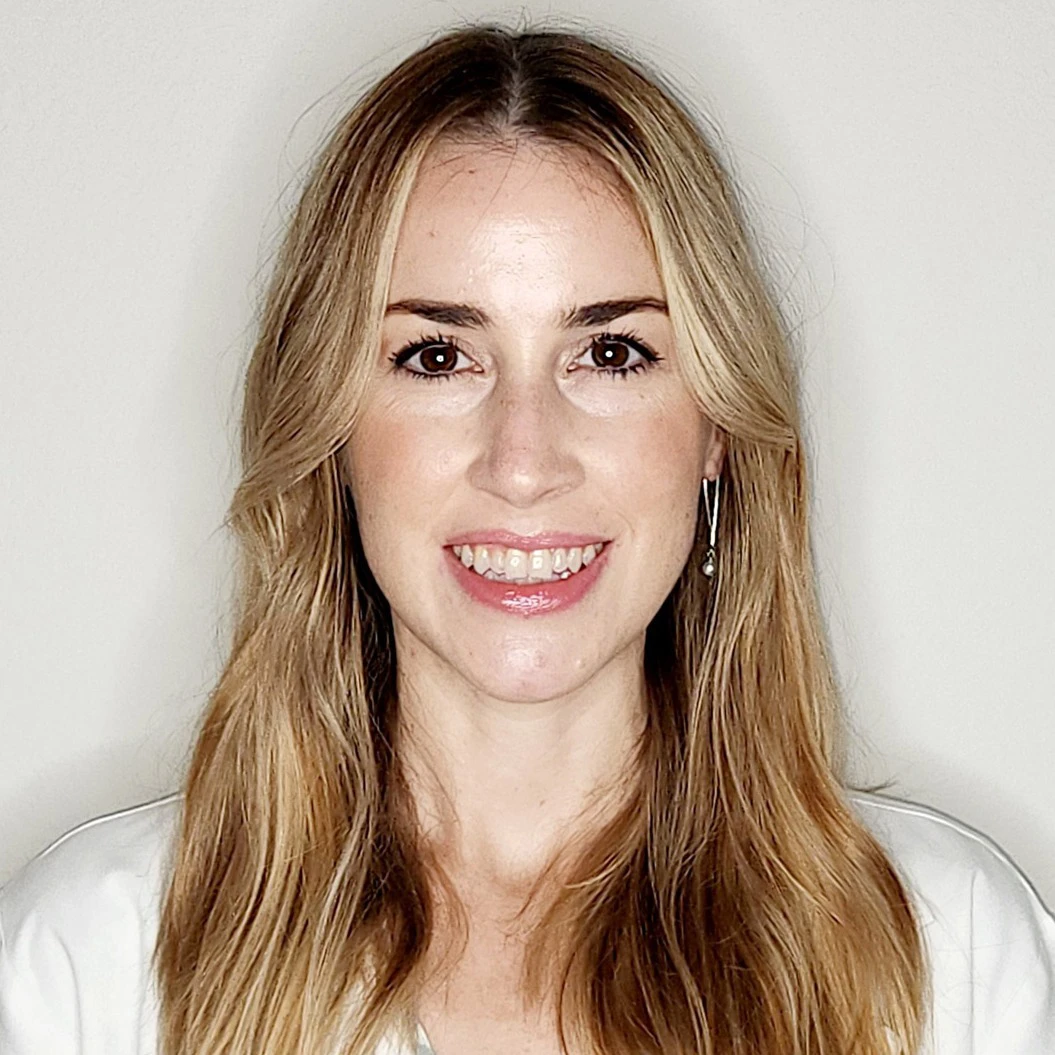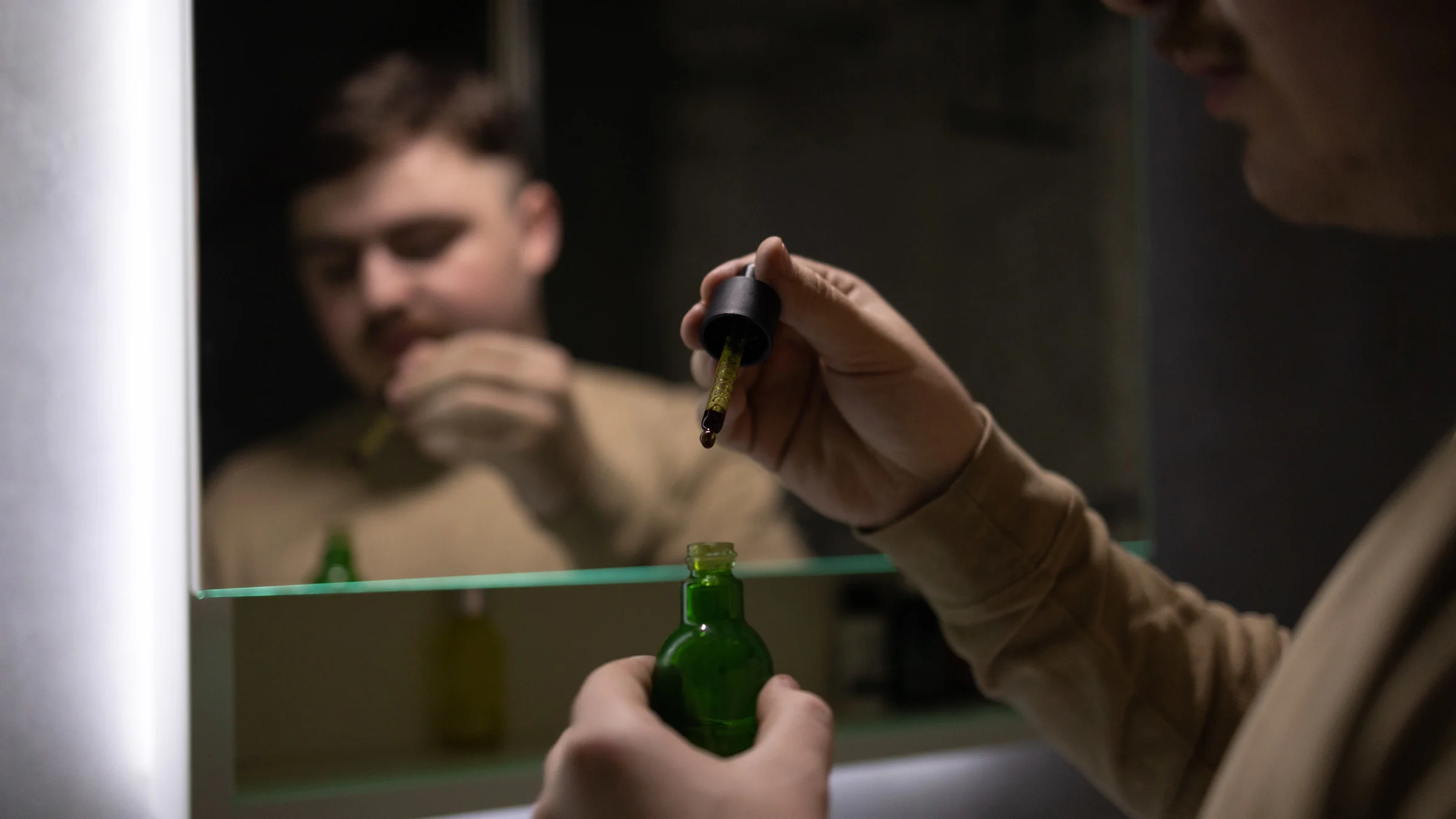Key takeaways:
Cannabinol (CBN) is formed from THC in cannabis as it breaks down over time. Some people take CBN to help them sleep. But currently, there aren’t enough clinical studies in humans to back this up.
Since there aren’t many studies on CBN, we don’t know much about its safety or possible drug interactions. And since CBN is similar to THC, it could cause a positive cannabis drug test.
Other well-studied over-the-counter sleep products, such as melatonin, are a safer option to help you sleep. If you’re interested in trying CBN, talk to a healthcare professional first. And only purchase CBN products from a state-regulated dispensary.
If you’re having trouble sleeping, it’s common to turn to your local drugstore for an over-the-counter (OTC) solution. And depending on what state you live in, you may see cannabis-based products containing cannabinol (CBN) in the sleep-aid section.
CBN is often promoted as a sleep aid. But what does the science say about how well CBN works for sleep? And how is it different from cannabidiol (CBD) and tetrahydrocannabinol (THC)?
What is CBN?
Cannabinol, or CBN, is an active ingredient (cannabinoid) found in the cannabis plant. It’s considered a “minor” cannabinoid, because it isn’t as common as more well-known cannabinoids, such as THC or CBD.
Search and compare options
Unlike most other cannabinoids, CBN isn’t made by the cannabis plant itself. Instead, CBN forms when THC breaks down. This usually happens slowly over time, but light and high temperatures can speed up the process.
How does CBN differ from THC and CBD?
There are some differences that set CBN apart from THC and CBD.
The psychoactive component of certain chemicals is what can make you feel a “high.” THC is considered the most psychoactive cannabinoid.
CBD is often referred to as non-psychoactive. Although it doesn’t cause a euphoric “high” the way THC does, CBD does have a calming, anti-anxiety effect. And it can make you feel sleepy, especially at high doses. These are psychoactive effects, so it’s more accurate to say that CBD isn’t an intoxicating cannabinoid.
CBN, on the other hand, seems to have little psychoactive effect, although some intoxicating effects were reported with high doses in early clinical studies.
Although CBN was one of the first cannabinoids to be identified, it isn’t very well studied. CBD and THC, on the other hand, have been studied extensively. So we simply have more information about CBD and THC as far as their risks and benefits than about CBN.
Sleep hygiene basics: Lifestyle changes can make a big difference when it comes to managing insomnia. Follow these tips to optimize your sleep routine.
Natural sleep remedies: Learn which supplements are backed by science when it comes to battling insomnia.
Sleep treatment guide: From OTC options to prescription medications, we cover the treatments available to help you get the rest you need.
What melatonin feels like: Read these first-hand accounts of what it’s like to take melatonin for insomnia.
Does CBN work for sleep?
We don’t know for sure, as there aren’t many clinical studies on CBN for sleep. And the results are mixed for the studies we do have.
The belief that CBN helps with sleep seems largely based on urban legend. As mentioned, CBN is formed over time as THC breaks down. And in cannabis lore, it’s a common belief that old weed makes you sleepy. Older cannabis products are more likely to have higher levels of CBN. So somewhere along the line CBN became connected to the sleepy effects associated with old cannabis. But there’s little to no scientific evidence to back this up.
Most of the studies on CBN for sleep use cannabis products that contain a mixture of cannabinoids, not CBN alone. Other studies show that CBD and THC may help with sleep, but there’s not much evidence that CBN does.
Read more like this
Explore these related articles, suggested for readers like you.
One small study found that 20 mg of CBN at bedtime reduced waking up during the night or other sleep disturbances. But it didn’t improve sleep quality or help people fall asleep faster.
A more recent animal study found that CBN increased sleep duration as well as zolpidem (Ambien), a prescription insomnia treatment. But CBN wasn’t as effective as zolpidem for falling asleep faster. It’s also important to note that the CBN dosages used in this study were much larger than typically found in the CBN products currently on the market. So further human studies are needed to verify these results.
How does CBN compare to melatonin for sleep?
Melatonin is one of the most popular OTC sleep aids. So you may wonder how CBN compares to melatonin and if they can be taken together.
A clinical study looked into sleep improvements from 15 mg of CBD with or without 15 mg of CBN compared with 5 mg of melatonin. In this study, all groups reported improved sleep quality, and there were no significant differences between products. Since this study didn’t look at CBN alone, it isn’t a direct comparison. But it seems to indicate that products containing an equal amount of CBD and CBN are similarly effective to melatonin for sleep. And adding a CBD/CBN product to melatonin didn’t provide any added benefit.
Another low-quality study compared a proprietary CBN product called TrueCBN, a melatonin supplement, and a placebo (pill with no medication) for sleep. It found that the CBN and melatonin groups had significant sleep improvements compared to placebo. And that there was no significant difference between the effects of melatonin versus any of the CBN dosages.
Based on the limited information we have, it seems that CBN and melatonin may both be effective for sleep. But we know much more about the safety and proper dosing of melatonin than we do about CBN. So melatonin seems to be a safer option. Just be sure your healthcare team checks for any drug interactions and OKs it for you first.
Can you take CBN every day for sleep?
It’s probably not a good idea unless your prescriber OKs it. OTC products, such as melatonin or Benadryl (diphenhydramine), are only meant for short-term use for sleep issues. And this applies to CBN, too.
If you need to take a sleep aid daily for longer than 2 weeks or so, it’s best to seek medical care. There may be an underlying health condition, such as sleep apnea or hormonal changes, causing your sleep trouble. Your healthcare team can help figure out what’s going on and determine the best path forward.
Can CBN cause side effects?
We don’t have a lot of information about CBN’s side effects. It’s formed from THC, but CBN seems to be far less potent than its parent compound. A study from the early 1970s gave participants as much CBN as they could tolerate. None of these participants asked to stop receiving CBN, and they all reported the experience as “mild and enjoyable.”
That being said, it’s possible that CBN could cause some of the same side effects as THC, since they’re similar compounds. This can include a rapid heart rate, and worsening of mental health issues, among others. So it’s a good idea to talk to a medical professional before you decide to try a CBN product.
Is it safe to take CBN for sleep?
We don’t know for sure. CBN seems to be less potent than THC, but since we don’t have many clinical studies on CBN, we don’t know how it interacts with other medications or if it has the same potential for serious side effects.
CBN products sold OTC aren’t regulated, so they can also contain chemicals and contaminants that can be harmful if consumed. They could also contain other cannabinoids and active ingredients that aren’t listed on the package.
What’s more, since CBN is similar to THC, it could trigger a positive cannabis drug test.
If your healthcare team thinks CBN could be a safe option for you, it's best to only purchase it from state-regulated cannabis dispensaries. And be sure to ask if there are any other cannabinoids in the product you’re purchasing. CBD, THC, and other cannabinoids have their own risks to consider before taking them.
Who shouldn’t take CBN?
You shouldn’t try CBN without talking to a healthcare professional first. But certain people are at more risk than others. You should avoid CBN products if you:
Are pregnant or breastfeeding
Have a history of substance misuse
Since we don’t have much safety information about CBN, there may be risks we don’t know about. So keep in mind that it may be unsafe for more people than those listed above.
The bottom line
Cannabinol (CBN) is an active ingredient found in cannabis. It’s formed when THC breaks down over time, so CBN levels go up as cannabis ages. Since older cannabis is thought to make you sleepy, there’s a belief that CBN is the reason for this. So you’ll often see CBN products marketed for sleep. But so far, the science showing CBN may improve sleep is mainly limited to animal studies.
CBN hasn’t been well-studied. So we also don’t know much about its side effects or possible drug interactions. And over the counter CBN products aren’t regulated, so they may contain contaminants or unlisted ingredients. Until we know more about CBN, other OTC sleep products, such as melatonin, are probably a safer option.

Why trust our experts?



References
Arnold, J., et. al. (2024). A sleepy cannabis constituent: Cannabinol and its active metabolite influence sleep architecture in rats. Neuropsychopharmacology.
Appendino, G. (2020). The early history of cannabinoid research. Rendiconti Lincei: Scienze Fisiche e Naturali.
Bonn-Miller, M. O., et al. (2023). A double-blind, randomized, placebo-controlled study of the safety and effects of CBN with and without CBD on sleep quality. Experimental and Clinical Psychopharmacology.
Centers for Disease Control and Prevention. (2021). Health effects: Teens.
Corroon, J. (2021). Cannabinol and sleep: Separating fact from fiction. Cannabis and Cannabinoid Research.
Gannon, W. E., et al. (2021). Novel formation of THC and CBN in a repeat-action tablet improves objective and subjective measurements of sleep. American Journal of Endocannabinoid Medicine.
Kolobaric, A., et al. (2023). A randomized, double-blind, placebo-controlled decentralized trial to assess sleep, health outcomes, and overall well-being in healthy adults reporting disturbed sleep, taking a melatonin-free supplement. Nutrients.
Kolobaric, A., et al. (2023). A randomized, double-blind, placebo controlled trial to assess the effectiveness and safety of melatonin and three formulations of Floraworks Proprietary truCBN for improving sleep. medRxiv.
Kroner, G. M., et al. (2020). Cannabinol (CBN) cross-reacts with two urine immunoassays designed to detect tetrahydrocannabinol (THC) metabolite. The Journal of Applied Laboratory Medicine.
Maioli, C., et al. (2022). Cannabinol: History, syntheses, and biological profile of the greatest “minor” cannabinoid. Plants.
Ng, T., et al. (2023). Tetrahydrocannabinol (THC). StatPearls.
Russo, E. B., et al. (2017). Chapter three - Cannabis pharmacology: The usual suspects and a few promising leads. Advances in Pharmacology.
Saleska, J. L., et al. (2023). The safety and comparative effectiveness of non-psychoactive cannabinoid formulations for the improvement of sleep: A double-blinded, randomized controlled trial. Journal of the American Nutrition Association.
Sheikh, N. K., et al. (2023). Cannabinoids. StatPearls.
Substance Abuse and Mental Health Services Administration. (2023). Know the risks of marijuana.
Walsh, J. H., et al. (2021). Treating insomnia symptoms with medicinal cannabis: A randomized, crossover trial of the efficacy of a cannabinoid medicine compared with placebo. Sleep.
Walsh, K. B., et al. (2021). Minor cannabinoids: Biosynthesis, molecular pharmacology and potential therapeutic uses. Frontiers in Pharmacology.


















